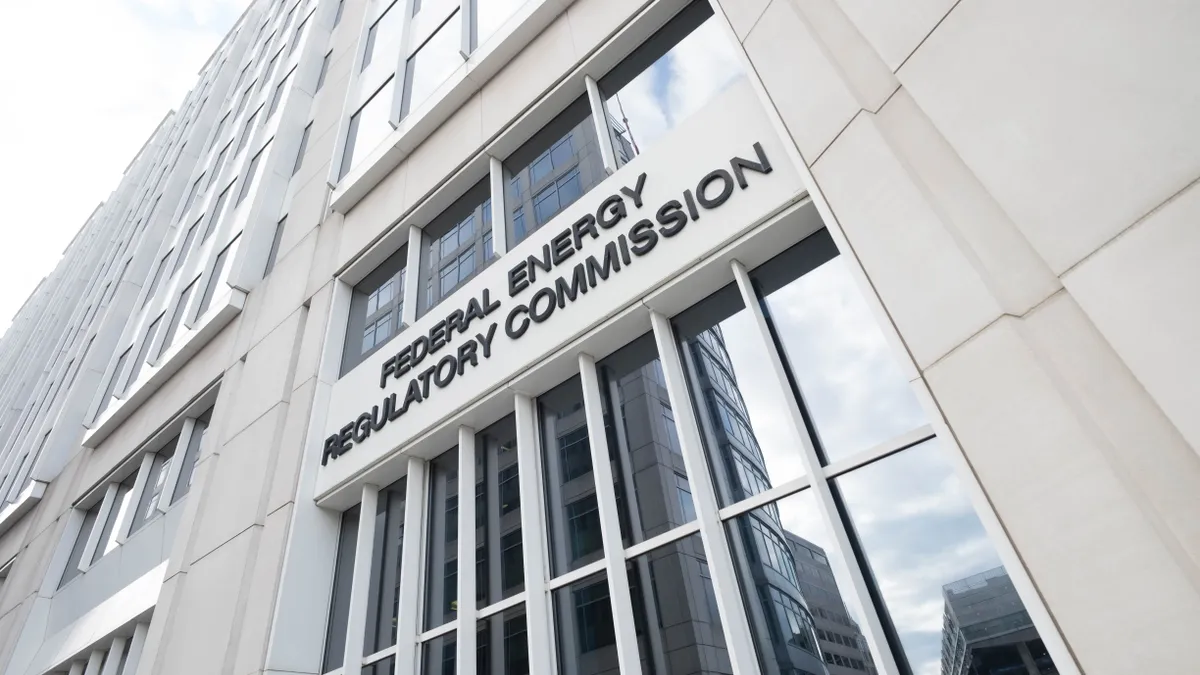Dive Brief:
- Delays caused by COVID-19 and the departure of a hearing commissioner at the Colorado Public Utilities Commission (PUC) have opened the door for Tri-State Generation and Transmission to have federal regulators preempt state jurisdiction over the exit charges for cooperative power providers seeking to leave its service, according to attorneys for two rural utilities.
- In March, the Federal Energy Regulatory Commission (FERC) determined it did not have exclusive jurisdiction over member exit charges, allowing Colorado regulators to set the amounts La Plata Electric Association (LPEA) and United Power would need to pay to exit their Tri-State contracts.
- But since then, the PUC's review of the cooperative's complaint has been delayed and Tri-State on April 13 filed an exit charge methodology tariff at FERC, setting off a "race to the courthouse" according to Ray Gifford, an attorney at Wilkinson Barker Knauer (WBK) representing the cooperatives.
Dive Insight:
Tri-State and two rural cooperatives are pressing for federal and state regulators, respectively, to quickly determine exit fees for utilities who want to abandon the G&T provider's coal-heavy generation mix and add more clean energy resources on their own.
Tri-State says FERC is the appropriate arbiter, and has filed an exit methodology that it says would apply to all members. Meanwhile, LPEA and United have pressed for Colorado regulators to expedite a determination of exit fees ahead of federal regulators deciding whether to approve Tri-State's filing.
A Colorado Administrative Law Judge has set an evidentiary hearing for May 18 to 22, said Gifford. WBK has requested that a determination of an exit charge by the judge head to the full commission as an "initial" decision and skip a step where the PUC would consider appeals of a "recommended" decision.
LPEA and United would like state regulators to set an exit charge before FERC rules on Tri-State's proposed methodology.
Tri-State has opposed that request, noting in an April 24 response that "omitting a recommended decision cannot cure the absence of subject matter jurisdiction."
"Tri-State is doing everything it can to make sure all of its members remain captive forever," Gifford told Utility Dive.
Gifford said FERC previously determined it would need to approve the exit methodology before it could go into effect — as opposed to it coming into force when Tri-State filed — but the cooperatives' attorneys want to move expeditiously.
"We by no means think the Colorado PUC is going to be divested of jurisdiction until FERC actually approves a methodology, but we also have to cover all our bases," Gifford said.
In addition, the exit fee methodology Tri-State filed with FERC is substantially similar to the process it used to set initial proposed exit fees for two previous cooperatives that left its service — both of which were subsequently negotiated significantly lower, he said.
Delta-Montrose Electric Association (DMEA) has agreed to pay Tri-State $88.5 million, including $26 million for purchase of facilities, and separately forfeit $48 million in patronage capital, to leave the cooperative's service on June 30.
According to Gifford, that amounts to a $62.5 million exit charge — but the law firm claims the initial offer from Tri-State was "extremely inflated." Specific amounts of the initial offer are confidential, but WBK on Monday filed with the PUC to have the amount made public.
Similarly, Kit Carson Electric Cooperative was able to leave Tri-State's service on a $37 million exit fee, though it was initially quoted a fee of $137 million.
"The only reason Tri-State seeks to prevent public disclosure of the Initial DMEA Exit Charge is because, just as was the case with Kit Carson, Tri-State’s initial Mark-to-Market exit charge to DMEA ended up being many multiples greater than the ultimate exit charge," attorneys for LPEA and United said in their April 27 filing. "Tri-State may seek to avoid the embarrassment associated with having its bullying tactics so plainly laid out for the public."
At FERC, a new round of filings, including comments on Tri-State's exit charge methodology, are due on May 11.
"That's where we'll be laying out that the history of this methodology is tortured," said Gifford. "Not only is Tri-State seeking to preempt state jurisdiction, but they've got this methodology where no one has been able to leave under it."
Tri-State officials say they have been a FERC jurisdictional utility since Sept. 3, 2019, which predates complaints filed by LPEA and United at the Colorado PUC.
"As we are an interstate wholesale power supplier, FERC is the entity that would best adjudicate the interests of all of our cooperative members and public power districts across all four states where we serve (as opposed to one state utility regulatory commission)," Tri-State spokesperson Mark Stutz said in an email.
Tri-State serves customers in New Mexico, Colorado, Wyoming and Nebraska. The utility is working to eliminate coal emissions in New Mexico by the end of 2020 and Colorado by 2030 and is adding more than 1,000 MW of new wind and solar resources.
By 2024, Tri-State says half of the energy consumed through its members will come from emissions-free renewable energy.
"We would note the irony in the fact that complainants have accused Tri-State of some sort of jurisdictional 'race to the finish line,'" Stutz added. "We only seek to bring resolution in a timely fashion as to the question of appropriate jurisdictional authority."















